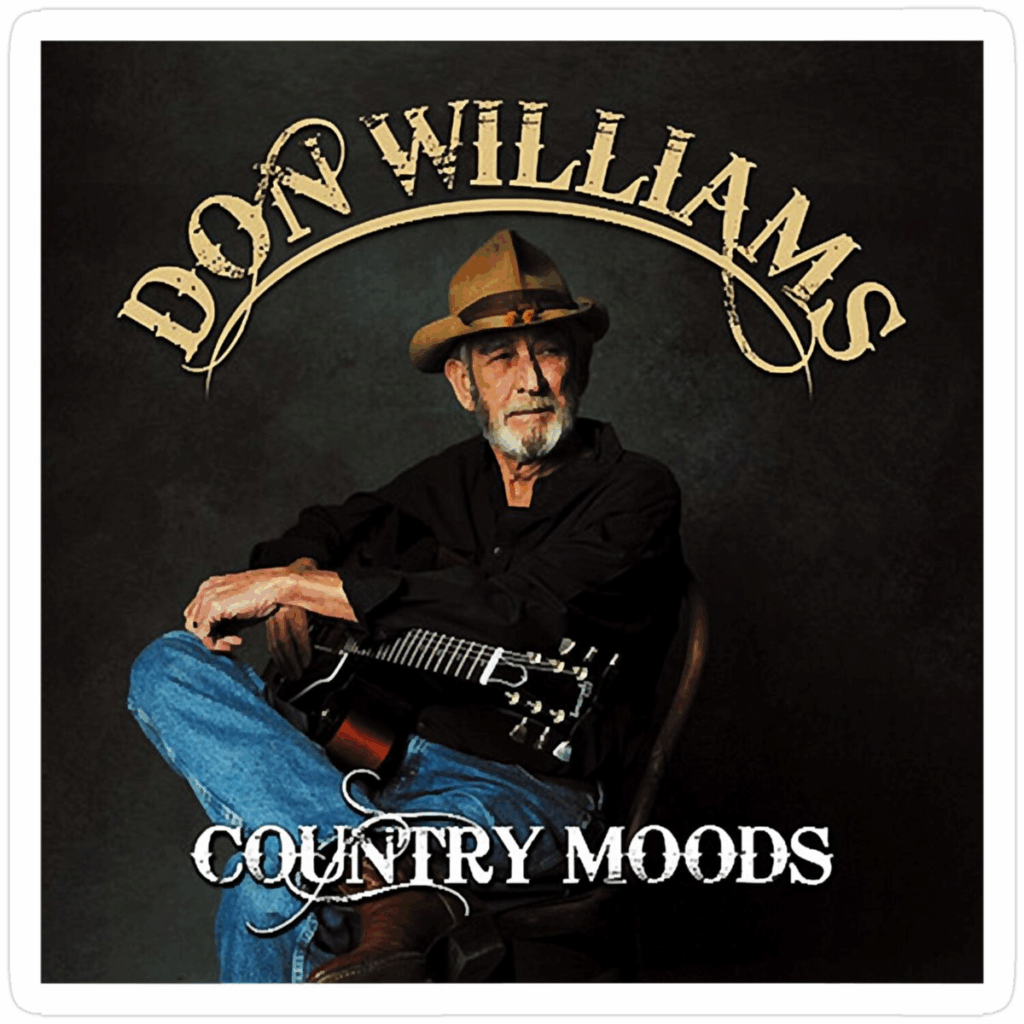
Don Williams’ “I Recall a Gypsy Woman”: The Quiet, Resonant Echo of a Fading Memory
There are songs that simply pass through the air, and then there are those that settle deep in the quiet corners of your heart, becoming a part of the landscape of your memory. Don Williams’ classic, “I Recall a Gypsy Woman,” first released in 1973, is unequivocally one of the latter. It’s a track that doesn’t demand your attention with flash or bravado; instead, it draws you in with the warm, understated sincerity of a man reflecting on a powerful, fleeting passion from his youth—a reflection that carries the weight and melancholy only time can impart. For those of us who came of age with his music, it’s not just a song; it’s a time machine.
The genesis of this profoundly moving ballad lies in the masterful penmanship of two Nashville legends: Bob McDill and Allen Reynolds. It was Reynolds, who also served as Williams’ producer, who first brought this melancholic tale of remembered lust and regret to life in the studio. Don Williams himself first recorded and released “I Recall a Gypsy Woman” on his 1973 album, Volume One. Remarkably, the track initially appeared as the B-side to his 1973 single, “Atta Way to Go,” which peaked at Number 13 on the Hot Country Songs chart in the U.S.
However, the song’s ultimate success and enduring legacy tell a fascinating story of a slow burn, particularly across the Atlantic. It wasn’t until 1976, amidst a surge in the popularity of country and western music in the United Kingdom, that “I Recall a Gypsy Woman” finally found its moment as an A-side single. It peaked at a respectable Number 13 on the UK Singles Chart and spent ten weeks on the chart, becoming Williams’ highest-charting single there. That success speaks volumes about the universal nature of the song’s theme, transcending cultural borders with its gentle, yet potent, emotional honesty.
The lyrical narrative is what truly sets this song apart, tapping into a common human experience: the pull of a past love that remains a vibrant, almost mythical, counterpoint to a settled, domestic present. The lyrics paint an evocative picture of a passionate, youthful encounter: “Silver coins that jingle-jangle, Fancy shoes that dance in time, Oh, the secrets of her dark eyes, They did sing a gypsy rhyme.” The imagery is rich—yellow clover, a meadow silky green, moonlight on ivory skin—creating a sensory memory so vivid it’s almost tangible.
Yet, the core of the song rests in the painful juxtaposition presented in the second verse. The narrator is now an established man, a husband, and a father: “Oh, gentle woman you sleep beside me, Little know who haunts my mind, Gypsy lady, I hear your laughter, And it dances in my head, While my tender wife and babies, Slumber softly in their beds.” This is where Williams’ delivery—often referred to as the “Gentle Giant” of country music—truly shines. His deep, smooth baritone doesn’t accuse or regret; it simply acknowledges the immutable fact of the memory. He delivers this internal conflict with a quiet resignation, conveying the weight of a youthful indiscretion that, despite the years, still “stirs the darkness” in his mind.
For many older listeners, the song becomes a mirror, reflecting on their own roads not taken, or the fleeting, intense relationships that remain crystallized in time, untouched by the mundane wear of daily life. It’s a beautifully melancholic meditation on memory, fidelity, and the enduring power of a first, or perhaps forbidden, passion. The song’s power isn’t in a grand announcement but in a whispered confession—a gentle nudge toward a memory we all carry.